Search Results
Showing results 61 to 80 of 81
Something is Different about You
Source Institutions
In this activity, learners use various dress-up or costume pieces to play a game of change.

Frijolitos
Source Institutions
Esta actividad enseña la proporción y razón por hacer que los aprendices hagan "ensaladas" que combinan tres tipos de frijoles en tres combinaciones diferentes.

Enciérrelo
Source Institutions
Jugando a este juego de estrategia, los chicos desarrollan su entendimiento de área y perímetro. En su turno, cada jugador hace una línea entre dos punto contiguos en la cuadrícula.
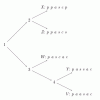
Phylogenetics
Source Institutions
This activity lets learners participate in the process of reconstructing a phylogenetic tree and introduces them to several core bioinformatics concepts, particularly in relation to evolution.
Narrow it Down: Numbers
Source Institutions
In this activity, learners will ask yes-no questions to identify a secret number (similar to Twenty Questions). Combine logic and numbers in this game for all ages.
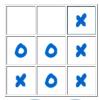
Tic-Tac-Toe
Source Institutions
In this online version of the classic paper and pencil game, learners practice looking ahead to anticipate an opponent's move.
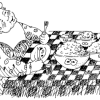
Three Bean Salads
Source Institutions
This game teaches ratio and proportion by having learners make "salads" that combine three types of beans in different combinations.

Zoo Calendar
Source Institutions
Use the Zoo Calendar (page 1 of PDF) to involve learners in interdisciplinary, whole language, and writing activities about ecological concepts.

Artificial Intelligence: The Intelligent Piece of Paper
Source Institutions
This activity explores what it means for a computer to be intelligent and introduces the topic of what a computer program is and how everything computers do simply involves following instructions writ
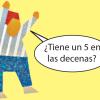
Número misterioso
Source Institutions
Combine la lógica y los números en este juego para todas las edades.

Planetary Rescue Squad
Source Institutions
This is an online Flash game where learners can experiment with ballistics and how to compensate for the varying levels of gravity found on the planets of our Solar System.
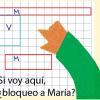
Doce a la Vez
Source Institutions
Jugando a este juego, los chicos desarrollan habilidades en área, perímetro, múltiples, y factores. Tomen turnos para hacer rectángulos con 12 cuadrados en la cuadrícula.
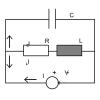
Wire Maze
Source Institutions
Learners create an electrical-circuit maze out of wire, then try to pass a paperclip through the maze without touching the wire.
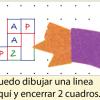
Puntos
Source Institutions
Jugando a este juego de estrategia, los chicos desarrollan su entendimiento sobre cuadrados, área, y perímetro. En su turno, cada jugador hace una línea entre dos punto contiguos en la cuadrícula.
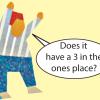
Mystery Number
Source Institutions
Combine logic and numbers in this game for all ages. Players start with a 10x10 grid of the numbers 1 to 100. One person chooses a secret number and announces the range in which it falls.

Building Fractions Game
Source Institutions
In this math lesson, learners investigate fractions by playing a game.

Stop: Practice Stopping at Vehicle Intersections
Source Institutions
This is an online game about stopping distance. Learners choose one of three vehicles and one of three speeds.

Mountain Rescue Mission
Source Institutions
In this math activity, learners play a game that helps reinforce learners' understanding of the coordinate system.

Self-Assembly Game
Source Institutions
This is a quick game about self-assembly (page 2 of PDF under Self-Assembly Activity). Like the molecules of DNA, learners will self-assemble into a pattern by following a simple set of rules.
Tip Topper
Source Institutions
In this math activity, learners role-play as wait staff at the Kidtropolis Diner. It's the end of the night and it's time for the staff to collect their tips.
